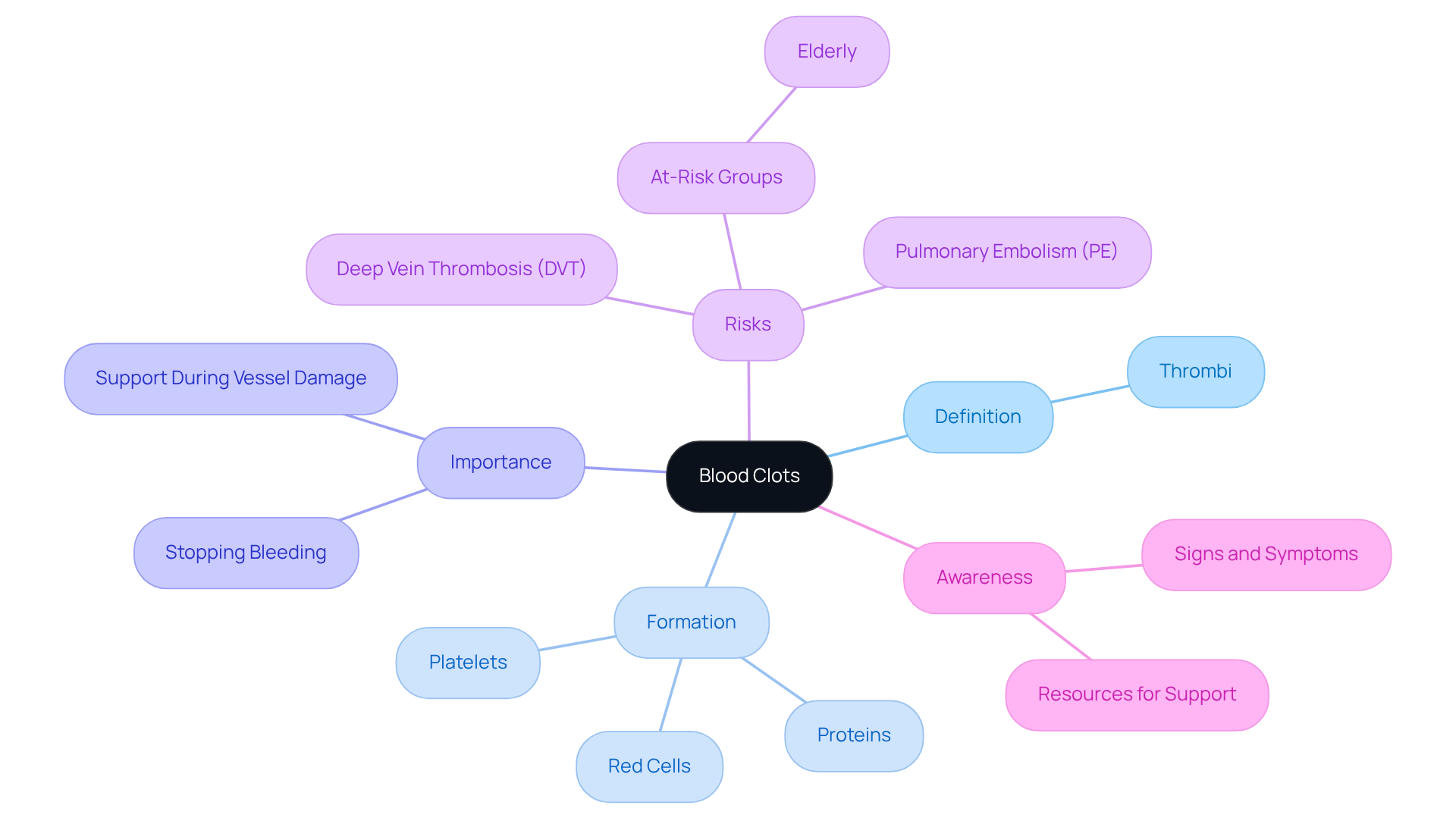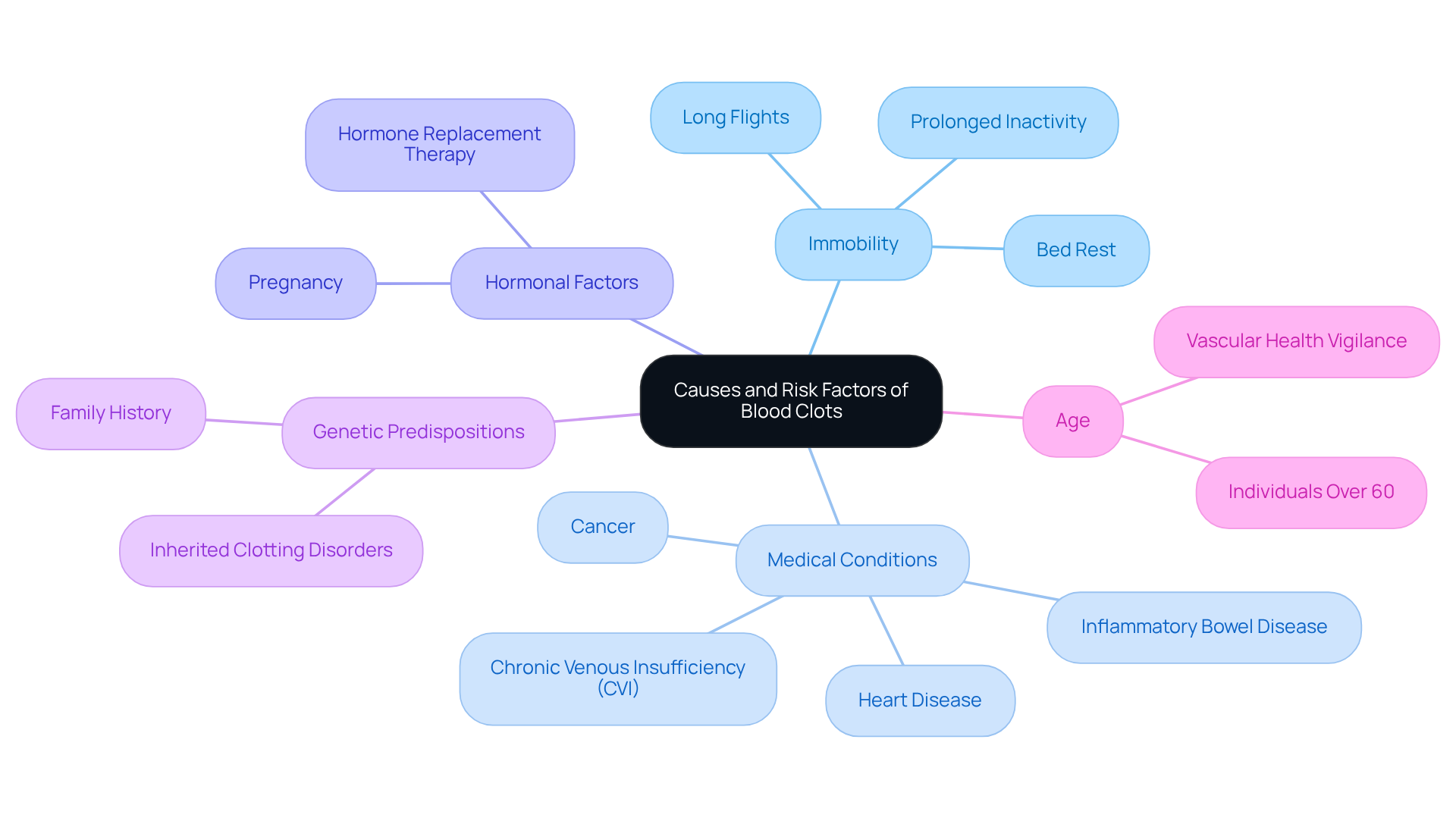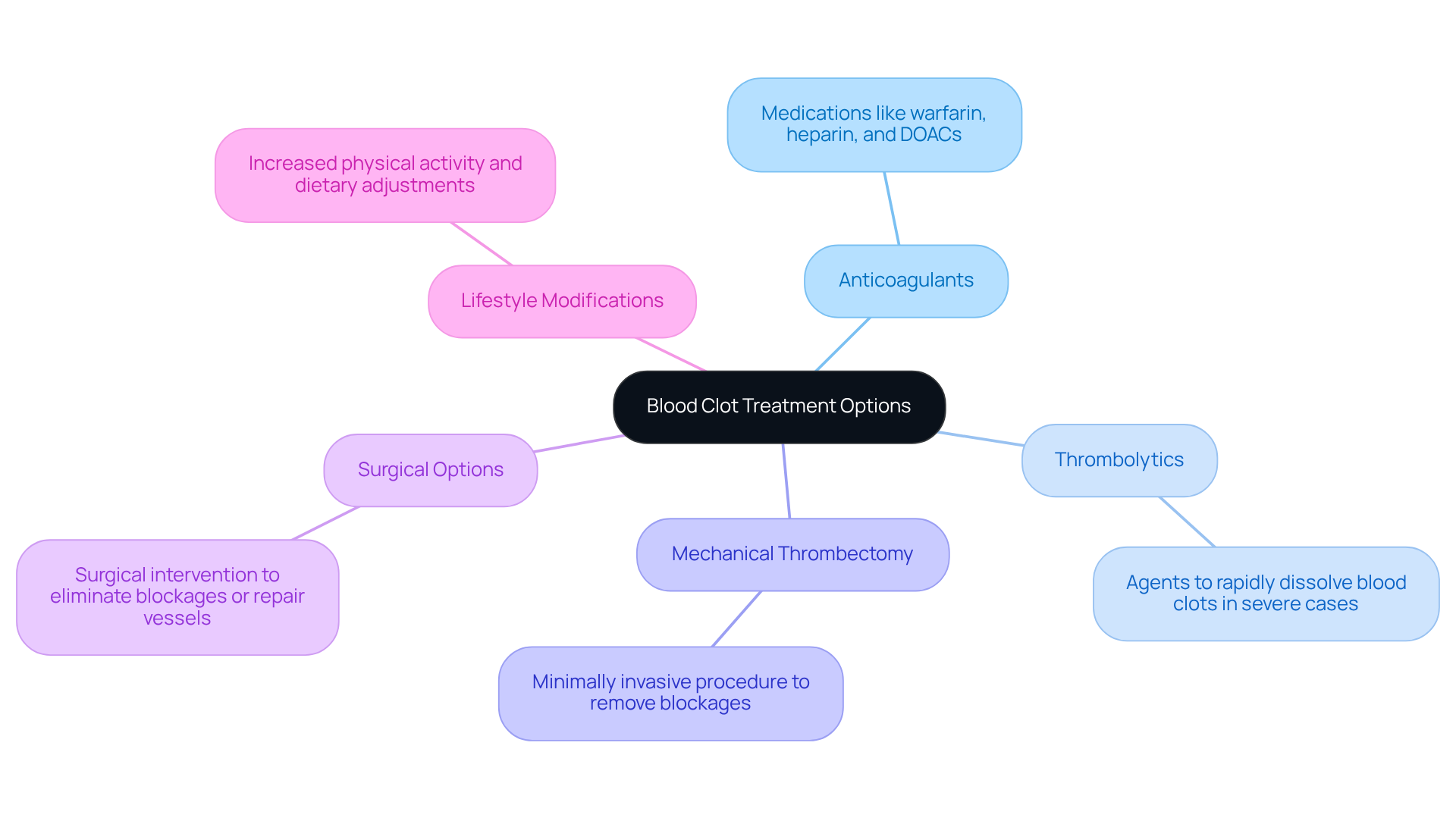


Managing blood clots is crucial for your health, and it can be effectively approached through a blend of prevention strategies and personalized treatment options. It's important to stay active and maintain hydration, as these simple steps can make a significant difference in your well-being. Additionally, medical interventions such as anticoagulants and thrombolytics play a vital role in both preventing and treating blood clots, particularly for those who may be at higher risk.
Remember, you're not alone in this journey; support is available to help you navigate these challenges.
Understanding blood clots is crucial for maintaining your overall health. These gel-like masses can both protect and endanger your body. While they play a vital role in stopping bleeding, inappropriate coagulation can lead to serious conditions such as deep vein thrombosis and pulmonary embolism. This guide explores essential strategies for prevention and treatment, offering insights into risk factors and effective lifestyle changes. With so much at stake, how can you take proactive steps to safeguard your vascular health and navigate the complexities of blood clot management?
We recognize that health concerns can be overwhelming, especially when it comes to something as serious as blood clots. It’s important to understand that you are not alone in this journey. By learning about blood clots and how to manage them, you can take control of your health. Together, we will explore ways to protect yourself and promote your well-being.
In addition to this, we aim to provide you with the knowledge and tools necessary to make informed decisions about your health. Remember, small lifestyle changes can have a significant impact on your vascular health. Let’s take this journey together, ensuring you feel supported every step of the way.
Gel-like masses, known as thrombi, form when red cells, platelets, and proteins come together. These masses play a vital role in stopping bleeding when a vessel is damaged, providing essential support in times of need. However, it's important to recognize that when coagulation happens inappropriately, it can block circulation, leading to serious conditions like deep vein thrombosis (DVT) or pulmonary embolism (PE). Understanding the characteristics of thrombi is crucial, especially for those in , such as the elderly, who may face additional contributing factors.
Have you ever wondered how these conditions could affect your health? It's essential to be aware of the signs and symptoms so that you can seek prompt care. Remember, you are not alone in this; there are many resources available to help you navigate these concerns. By staying informed and proactive, you can take important steps toward maintaining your health and well-being. We are here to support you every step of the way.

Several factors can contribute to the formation of , and it's important to be aware of them for your health. Consider the following:
Identifying these risk factors is essential for implementing preventive measures related to blood clots cure. Regular activity and medical consultations can make a significant difference. At places like Amavita Heart and Vascular Health, we offer thorough vascular evaluations and preventive screenings to support you. Remember, you are not alone in this journey; we are here to help you prioritize your health and well-being.

To effectively prevent blood clots, it’s important to consider some supportive strategies that can truly make a difference in your health:
By applying these strategies, you can significantly reduce the risk of vascular blockages and work towards a blood clots cure, particularly if you are an older adult or have pre-existing risk factors. Consistent physical activity and adequate hydration are key elements in maintaining healthy circulation and preventing complications. Remember, you are not alone on this journey; support and resources are available to help you thrive.

Treatment options for blood blockages can vary significantly based on their severity and location. At Amavita Heart and Vascular Health®, we understand that navigating these health concerns can be daunting, especially for high-risk patients. Our targeted cardiovascular care is designed with your needs in mind, ensuring advanced imaging and comprehensive evaluations to help determine the best course of action for you.
Common treatments include:
We encourage you to consult with a at Amavita to determine the most appropriate treatment plan tailored to your individual health needs and circumstances. Remember, you are not alone in this journey; we are here to provide you with innovative cardiovascular care, ensuring same-day convenience and compassionate support every step of the way.

Understanding and addressing blood clots is essential for maintaining your overall health, especially if you are at higher risk. This guide highlights the importance of recognizing the role thrombi play in your body while also emphasizing the potential dangers of inappropriate coagulation. By being informed about blood clots, you can take proactive steps to safeguard your vascular health.
Key points discussed include the various causes and risk factors contributing to blood clot formation, such as:
Effective prevention strategies—like staying active, maintaining hydration, and making dietary adjustments—are crucial in reducing your risk of clots. Furthermore, treatment options range from anticoagulants and thrombolytics to lifestyle modifications, all tailored to your individual health needs.
Ultimately, awareness and action are vital in the fight against blood clots. By understanding the risks and implementing preventive measures, you can significantly enhance your health and well-being. Consulting with your healthcare provider for personalized strategies and remaining vigilant about your vascular health can lead to better outcomes and a greater quality of life. Taking these steps not only helps in managing existing conditions but also empowers you to prevent future complications related to blood clots.
What are blood clots and how do they form?
Blood clots, also known as thrombi, are gel-like masses that form when red blood cells, platelets, and proteins come together. They play a vital role in stopping bleeding when a blood vessel is damaged.
Why are blood clots important?
Blood clots are important because they provide essential support in stopping bleeding, which is crucial for preventing excessive blood loss during injuries.
What can happen if coagulation occurs inappropriately?
If coagulation occurs inappropriately, it can block circulation, leading to serious conditions such as deep vein thrombosis (DVT) or pulmonary embolism (PE).
Who is at risk for developing blood clots?
Individuals in at-risk groups, such as the elderly, may face additional contributing factors that increase their likelihood of developing blood clots.
What should individuals be aware of regarding blood clots?
It is essential to be aware of the signs and symptoms of blood clots so that prompt care can be sought if necessary.
Are there resources available for those concerned about blood clots?
Yes, there are many resources available to help individuals navigate concerns about blood clots and maintain their health and well-being.